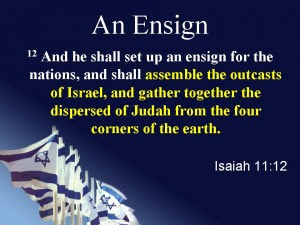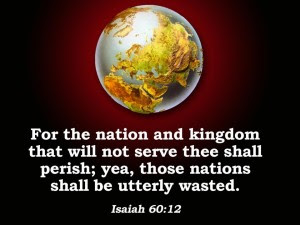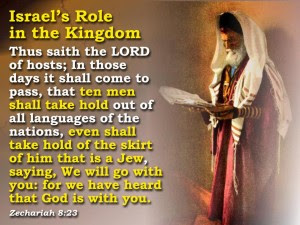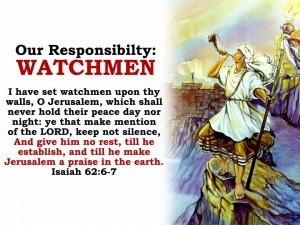Israel of God or of Men?







Welcome to the Bible Prophecy Channel which we hope you will find an informative and stimulating source of information relating to Bible Prophecy, Eschatology and Biblical Christianity The Bible Prophecy Channel is dedicated to preaching the Gospel through pre-recorded video and audio presentations based on the Bible - the Word of God. We believe in the second coming of the Lord Jesus Christ when Jesus will return to earth and establish God's kingdom.








David, like Abraham and many other recipients of God's promises, did not have an easy life. He grew up as the youngest son in a large family which, in the Israel of 1000 B.C., meant looking after the sheep and running errands to his rather bossy older brothers (1 Sam. 15-17). During this time he learnt a level of faith in God which few men have since approached.
The day came when Israel were faced with the ultimate challenge from their aggressive neighbours, the Philistines; they were challenged to let one of their men fight the giant Goliath, the Philistine champion, on the understanding that whoever won that fight would rule over the losers. With God's help David defeated Goliath by using a sling, which earned him even greater popularity than their king (Saul). "Jealousy is cruel as the grave" (Song. 8:6), words which were proved true by Saul's persecution of David for the next 20 years, chasing him as a rat around the wilderness of southern Israel.
Eventually David became king, and to show his appreciation of God's love toward him during the wilderness of his life, he decided to build God a temple. The reply from God was that David's son, Solomon, would build the temple and that God wanted to build David a house (2 Sam. 7:4-13). Then followed a detailed promise which repeats much of what was told Abraham, and which also filled in some other details:-
"And when thy days be fulfilled, and thou shalt sleep with thy fathers, I will set up thy seed after thee, which shall proceed out of thy bowels, and I will establish his kingdom. He shall build an house for my name, and I will stablish the throne of his kingdom for ever. I will be his father, and he shall be my son. If he commit iniquity, I will chasten him with the rod of men, and with the stripes of the children of men: But my mercy shall not depart away from him, as I took it from Saul, whom I put away before thee. And thine house and thy kingdom shall be established for ever before thee: thy throne shall be established for ever" (v.12-16).
From our previous studies we would expect the "seed" to be Jesus. His description as the son of God (2 Sam. 7:14) confirms this, as do many other references in other parts of the Bible:-
- "I am the...offspring of David", Jesus said (Rev. 22:16).
- "(Jesus), made of the seed of David according to the flesh" (Rom. 1:3).
- "Of this man's seed (David's) hath God, according to His promise, raised unto Israel a saviour, Jesus" (Acts 13:23).
- The angel told the virgin Mary concerning her son, Jesus: "The Lord God shall give unto him the throne of his father (ancestor) David...and of his Kingdom there shall be no end" (Luke 1:32,33). This is applying the promise of David's seed, in 2 Sam. 7:13, to Jesus.
With the seed firmly identified as Jesus, a number of details now become significant:-
-1) The Seed
"Thy seed...which shall proceed out of thy bowels...I will be his father, and he shall be my son." "...of the fruit of thy body will I set upon thy throne" (2 Sam. 7:12,14; Ps. 132:10,11). Jesus, the seed, was to be a literal, bodily descendant of David, and yet have God as his Father. This could only be achieved by the virgin birth as described in the New Testament; Jesus' mother was Mary, a descendant of David (Luke 1:32), but he had no human father. God acted miraculously upon Mary's womb by the Holy Spirit in order to make her conceive Jesus, and so the Angel commented, "therefore also that holy thing which shall be born of thee shall be called the son of God" (Luke 1:35). The"virgin birth" was the only way in which this promise to David could be properly fulfilled.
-2) The House
"He shall build an house for my name" (2 Sam. 7:13) shows that Jesus will build a temple for God - both literal and spiritual. Ezekiel 40-48 describes how that in the Millennium (the first 1000 years of God's Kingdom after Jesus returns to the earth) a temple will be built in Jerusalem. God's "house" is where He is willing to live, and Isa. 66:1,2 tells us that He will come to live in the hearts of men who are humble to His word. Jesus is therefore building a spiritual temple for God to dwell in, made up of the true believers. Descriptions of Jesus as the foundation stone of God's temple (1 Peter 2:4-8) and of Christians as the temple stones (1 Peter 2:5) now slot into place.
-3) The Throne
"I will stablish the throne of his (Christ's) kingdom for ever...thine (David's) house and thy kingdom...thy throne shall be established for ever (2 Sam. 7:13,16 cp. Isa. 9:6,7)". Christ's kingdom will therefore be based on David's kingdom of Israel; this means that the coming kingdom of God will be a re-establishment of the kingdom of Israel - see Study 5.3 for more on this. To fulfil this promise, Christ must reign on David's "throne", or place of rulership. This was literally in Jerusalem. This is another proof that the kingdom must be established here on earth in order to fulfil these promises.
-4) The Kingdom
"Thine house and thy kingdom shall be established for ever before thee" (2 Sam. 7:16) suggests that David would witness the establishment of Christ's eternal kingdom. This was therefore an indirect promise that he would be resurrected at Christ's return so that he could see with his own eyes the kingdom being set up world-wide, with Jesus reigning from Jerusalem.
These things which were promised to David are absolutely vital to understand. David joyfully spoke of these things as "an everlasting covenant...this is all my salvation and all my desire" (2 Sam. 23:5). These things relate to our salvation too; rejoicing in them should likewise be all our desire. So again the point is made that these doctrines are important. It is a tragedy that Christendom teaches doctrines which flatly contradict these marvellous truths:-
- If Jesus physically "pre-existed", i.e. he existed as a person before he was born, then this makes nonsense of these promises that Jesus would be David's "seed", or descendant.
- If the kingdom of God will be in heaven, then Jesus cannot re-establish David's kingdom of Israel, nor can he reign from David's "throne" or place of rulership. These things were literally on the earth, and so their re-establishment must be in the same place.
David's literal son, Solomon, fulfilled some part of the promises to David. He built a literal temple for God (1 Kings 5-8), and he had a very prosperous kingdom. Nations from all around sent representatives to pay respect to Solomon (1 Kings 10), and there was great spiritual blessing from the use of the temple. Solomon's reign therefore pointed forward to the much greater fulfilment of the promises to David which will be seen in the kingdom of Christ.
Some have claimed that the promises to David were completely fulfilled in Solomon, but this is disallowed by the following:--
- Abundant New Testament evidence shows that the "seed" was Christ, not Solomon.
- David seems to have connected the promises God made to him with those to Abraham (1 Chron. 17:27 = Gen. 22:17,18).
- The kingdom of the "seed" was to be everlasting - which Solomon's was not.
- David recognized that the promises were concerning eternal life, which precluded any reference to his immediate family: "Although my house be not so with God; yet he hath made with me an everlasting covenant" (2 Sam. 23:5).
- The seed of David is the Messiah, the Saviour from sin (Isa. 9:6,7; 22:22; Jer. 33:5,6,15; Jn. 7:42). But Solomon later turned away from God (1 Kings 11:1-13; Neh. 13:26) due to his marriage with those outside the hope of Israel.
"I will make of thee a great nation, and I will bless thee, and make thy name great... and in thee shall all families of the earth be blessed" (Gen 12:2,3);Abraham's belief in the last of these promises from God was "counted... to him for righteousness", in other words, his sins were forgiven because of his faith (v 6; cf Rom 4:3; Gal 3:6; Jam 2:23).
"Lift up now thine eyes, and look... for all the land which thou seest, to thee will I give it, and to thy seed for ever" (Gen 13:14,15);
"Look now toward heaven, and tell the stars, if thou be able to number them: and He said unto him, So shall thy seed be" (Gen 15:5).